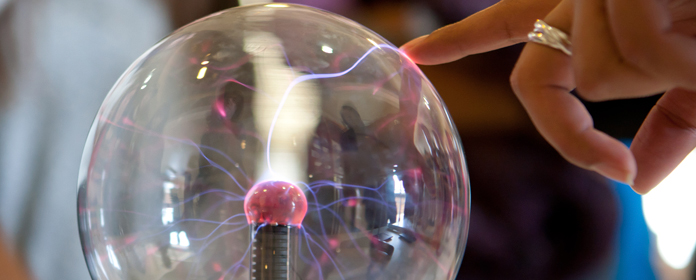Find out why "We are all science".
This summer course, taught by professors and researchers from the School de Ciencias, will start next week.

Between June 27 and 30, the summer course "Todos somos de ciencias" (We are all scientists) will be given by professors and researchers from the School of Sciences of the University of Navarra as part of the Summer Courses of the Universities of Navarra, promoted by the Government of Navarra in partnership with the City Council of Pamplona.
The set of talks -coordinated by Professor Jorge Elorza- have an informative tone and are aimed at the general public. The first of these, at position by Elorza himself, will deal with the possibility of bringing human thinking closer to machines (artificial intelligence): "We will also reflect on how our brain reasons and what interactions exist between machines and humans, based on fuzzy logic or Fuzzy Logic, which is already being applied in computing", explains Professor Elorza.
Jean Bragard, on the other hand, will address the electrical phenomena inside the body, through a historical summary of the discoveries related to bio-electricity -from the time of the pharaohs, ancient Greece and Rome-, "to biophysics and the great discoveries being made by doctors, physicists and engineers today," adds the expert, professor of the Physics department of the academic center.
Transportation, traffic jams, universe, art and order from a scientific perspectiveRaúl Cruz, professor at the same department, will offer a lecture on transport processes at different scales of biology: from oxygen transport by hemoglobin, to transport processes across the cell membrane and within the cells themselves.
Iker Zuriguel will add to this topic what Physics knows so far about how we humans act when faced with an evacuation: what happens if we are pushed? Are the accepted theories real or not?
The dynamics of the universe, its origin, its dimensions and the latest findings in this regard will be the focus of the talk by physicist Javier Burguete. This will be followed by a lecture that unites Chemistry and art under the umbrella of the scientific study of works of art, "where the different techniques have greatly facilitated the knowledge, restoration or maintenance of historical and artistic heritage," stresses the professor of Chemistry and specialist in the subject Adrian Duran.
Finally, the course will close with lectures by José Ramón Isasi and Carmen Palacios. The former will describe how order plays a central role in Nature and in life itself: "In this session we will demonstrate that, paradoxical as it may seem, subject tends to spontaneously self-assemble. Inanimate substances are ordered in Nature in beautiful ways and, in an even more fascinating way, life is organized. In this sense, some simple activities and experiments will help us to understand how this is possible". For her part, Professor Palacios will show the basics of some physical experiments on waves, mechanics or electricity that can even be done at home to explain to the little ones some basic concepts of science.
